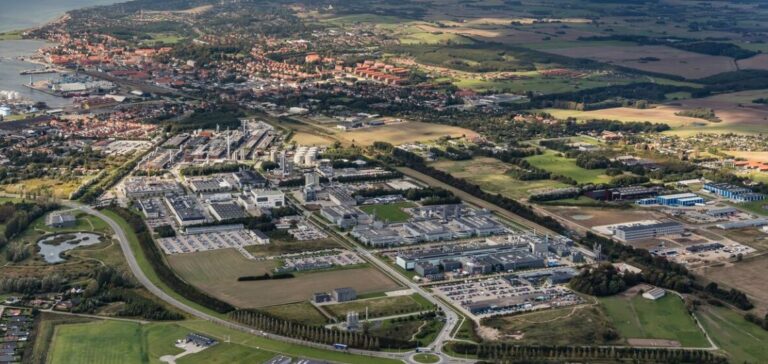Equinor, a leader in low-carbon solutions, has obtained its first exploration permit for CO2 storage in Denmark, in partnership with Ørsted and Nordsøfonden. This permit, issued for the CO2 Storage Kalundborg project, will enable in-depth studies to be carried out to assess the feasibility of storing CO2 in a reservoir located around 1,400 meters underground, with a potential capacity of 12 million tonnes of CO2 per year. Denmark prioritizes energy transition, as illustrated by the green hydrogen gas pipeline project between Denmark and Germany.
The first phase of the project involves collecting seismic and subsurface data to ensure that environmental requirements are met. If the results are conclusive, CO2 storage could begin by the end of the decade. “We are delighted to receive this permit with our partners. Developing large-scale CO2 storage solutions is crucial to reducing emissions from hard-to-decarbonize industries,” says Grete Tveit, Senior Vice President of Low-Carbon Solutions at Equinor.
Collaboration and prospects
Equinor holds a 60% stake in the permit, while Ørsted and Nordsøfonden each own 20%. This partnership draws on Equinor’s experience in secure CO2 storage on the Norwegian continental shelf for almost 30 years. The project aims to strengthen the complete CO2 capture, transport and storage value chain, aligned with Equinor’s ambition to transport and store 30 to 50 million tonnes of CO2 per year by 2035.
The permit’s location, close to Ørsted’s CO2 storage and shipping terminal in Kalundborg, is strategic. Ørsted is building a CO2 capture facility at the Asnæs power plant, which will be operational by 2026. “We are delighted to be working with Equinor and Nordsøfonden to explore the potential for CO2 storage at Kalundborg,” says Ole Thomsen, Senior Vice President Bioenergy at Ørsted.
Norway’s role in CO2 storage
At the same time, Equinor received new permits for the development of two CO2 storage sites in the North Sea, named Albondigas and Kinno, each with a storage capacity of 5 million tonnes per year. These permits will strengthen Norway’s position as a leader in CO2 storage in Europe.
“We are delighted that the Norwegian authorities have awarded these new permits. Demand for CO2 storage is growing, and it is crucial to rapidly develop new capacity to support the decarbonization of European industries,” adds Grete Tveit.
Equinor forecasts returns on investment of 4-8% for its early-stage CO2 storage projects, with the potential to increase value as commercial markets develop. The development of these storage capacities is essential to meet the growing interest in CO2 transport and storage services.






















